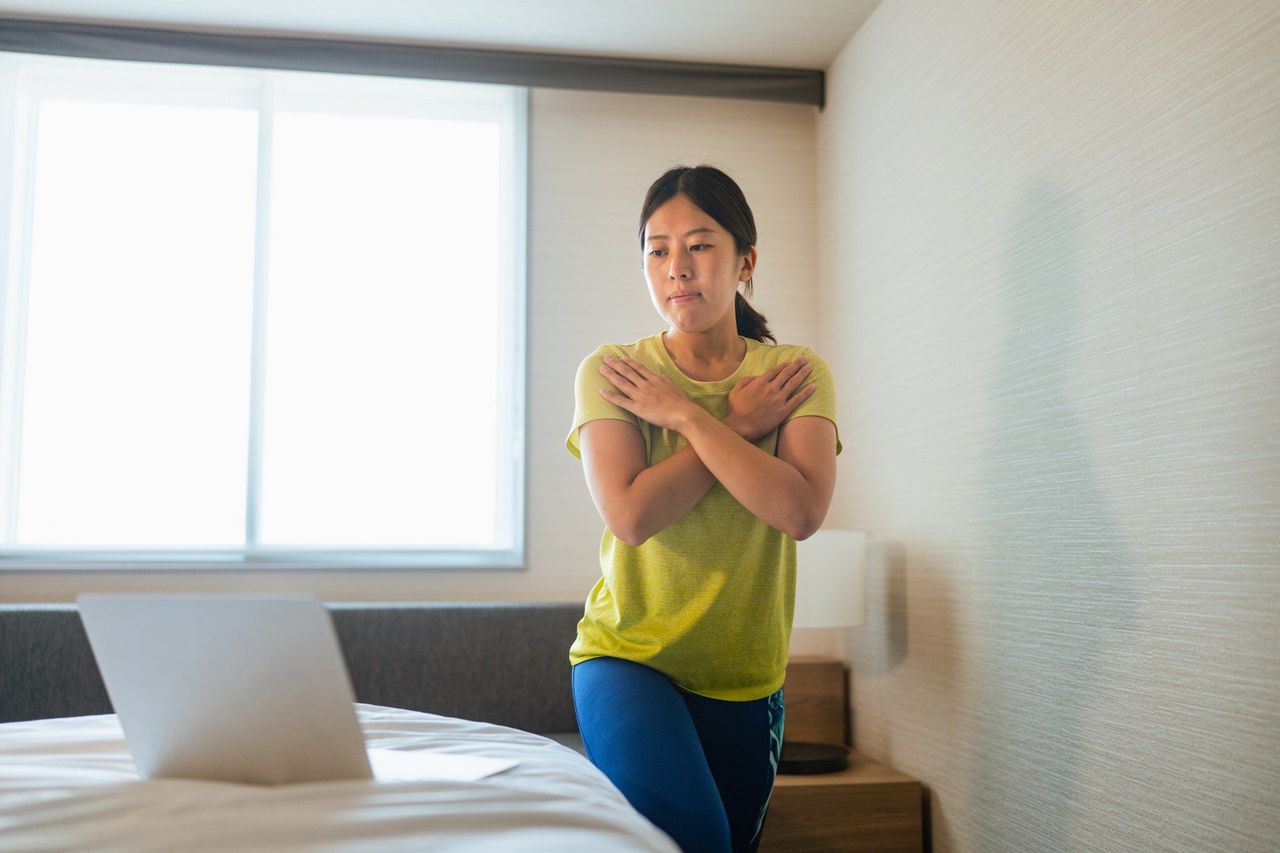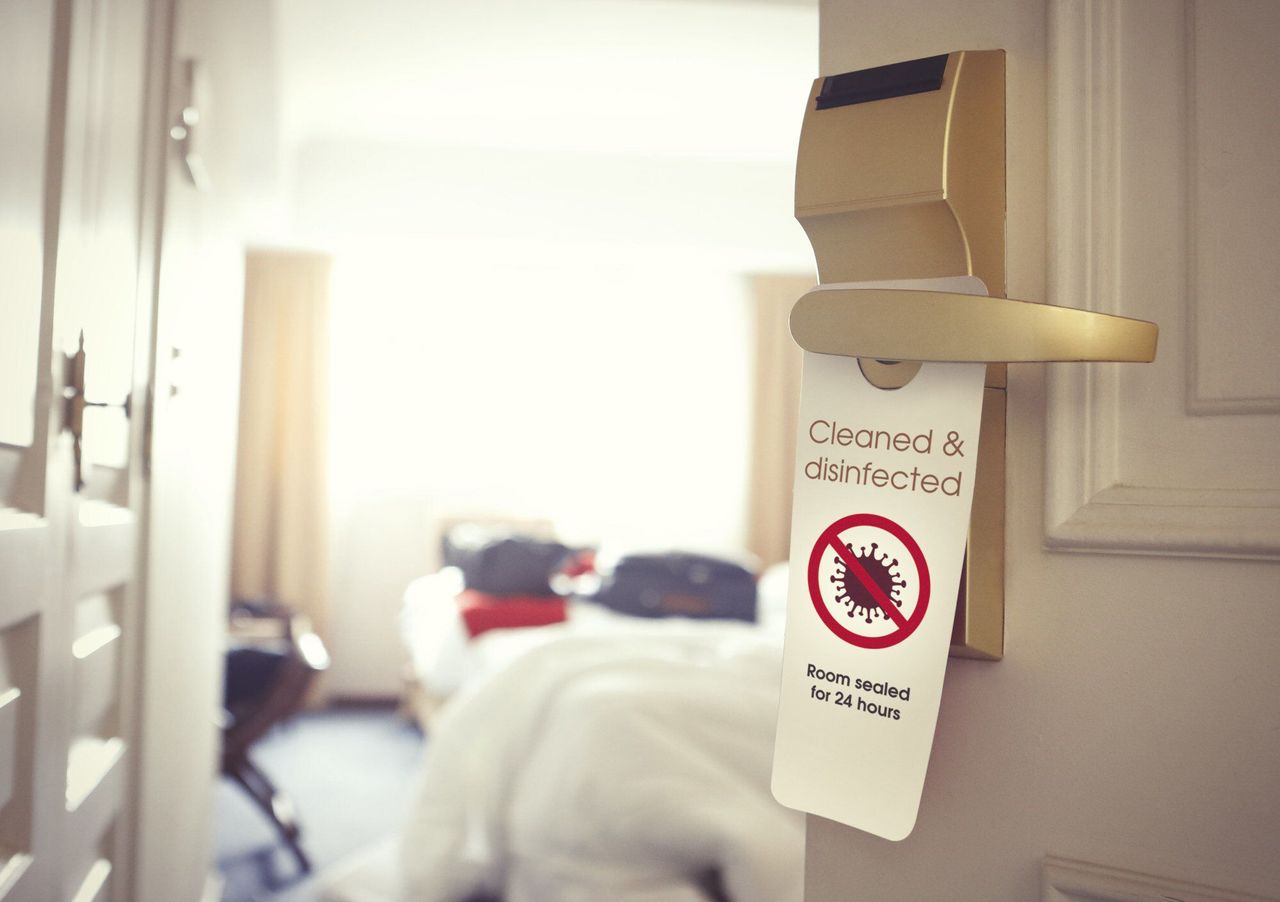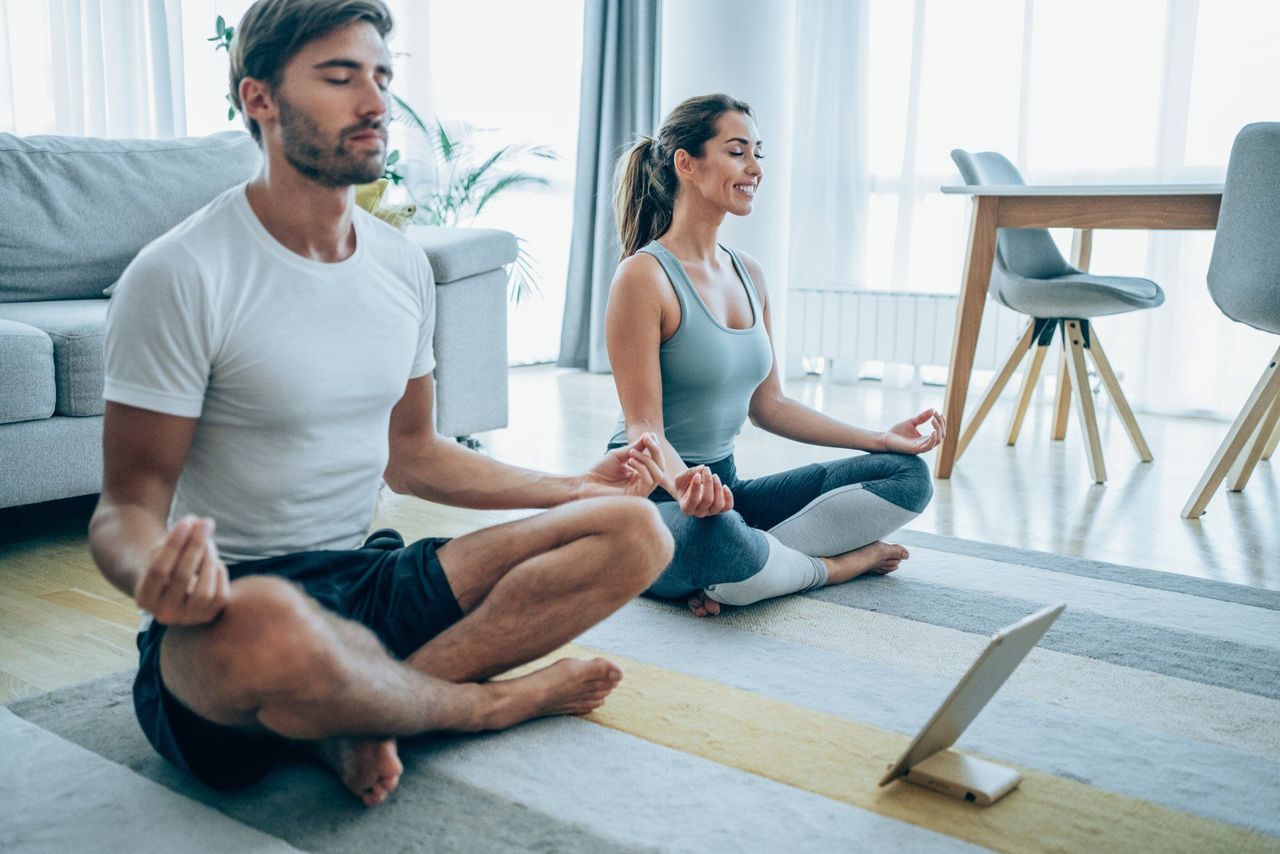There are ways to get the most out of quarantine time with your partner and avoid conflicts, from a screen-free daily ‘happy hour’ to respecting one another’s personal space.
Covid-19 restrictions are easing and the world is slowly reopening, allowing people to once again venture beyond their own borders. And, with the advent of the holiday season, more may be travelling abroad for a long-awaited vacation or to reunite with loved ones.
But the holiday many of us have been looking forward to may still be marred by strict quarantine measures – like in Hong Kong, which has one of the toughest quarantine regimes in the world. Some people are having to endure a 21-day quarantine before being allowed to enter the city.
While it is stressful enough being confined to a hotel room for three weeks on your own, doing it with a partner can be equally challenging – if not more.
But with the right mindset, you can use your time productively and perhaps even bond with your partner in new ways.
 Valentina Tudose is a relationship expert and certified hypnotherapist.
Valentina Tudose is a relationship expert and certified hypnotherapist.
Valentina Tudose, a relationship expert and certified hypnotherapist, says there are ways to get the most of your quarantine time with your partner, and she offers tips to avoid conflicts so that you can carry on “business as usual” throughout the stay.
“See quarantine time as an opportunity for reconnecting with each other. Start with the intention of making the most of it. Before you travel, plan your daily routines to ensure you are mindful of each other’s needs for space at particular times of the day. For example, make sure to avoid scheduling Zoom calls at the same time,” she says.
Tudose explains that our mind can focus for around 90 minutes at most at a time. Accordingly, planning your day in 90-minute intervals can be a productive use of your time. If the room you share is small, you may consider alternating work and rest periods between you.
And she stresses that if conflicts arise, it is likely born from the stress of being confined rather than you.
“The lack of personal space would affect any person’s ability to manage their emotions. Discuss with your partner how you can support each other in those moments. Some people may want a hug while others will need space.”
 Give each other space for personal activities, such as watching an online physical training video.
Give each other space for personal activities, such as watching an online physical training video.
She says it is also important to allocate time to spend with each other by creating a different type of “happy hour”.
“Spend quality time with no phones or social media to distract you. Something as simple as a board game or a card game is a fun way to bond,” she says.
If you have a partner who tends to become hostile when under pressure, Tudose offers the following advice. Firstly, remind yourself that their bad mood is likely not about you but rather to do with something they see differently than you.
 Make sure to avoid scheduling Zoom calls at the same time while stuck together in quarantine.
Make sure to avoid scheduling Zoom calls at the same time while stuck together in quarantine.
“Help your partner calm down, keep your voice and body language neutral, and ask: ‘Is there something I can do to help you with this problem/situation?’ or ‘What do you need from me?’.
“People are more likely to be open to receiving help if they do not feel being put on the spot,” she points out.
“Try not to complain or blame your partner for things they do or say as that will make them feel judged and escalate the tension. Avoid saying things like, ‘Why do you always do this?’ or ‘You never do this!’, as these can come off as personal attacks against them, rather than their behaviour.”
 While it is stressful enough being confined to a hotel room for three
weeks on your own, doing it with a partner can be equally challenging.
While it is stressful enough being confined to a hotel room for three
weeks on your own, doing it with a partner can be equally challenging.
And if your relationship is “cold” before going into quarantine, you can try having a conversation about how you will stay out of each other’s way and make agreements about respecting each other’s space beforehand, she says.
On how to manage anxiety and stress for yourself and your partner, Tudose offers the following practical tips.
Breathing, exercise and meditation help to regulate emotions. Tudose cites one simple breathing exercise that has proven helpful for her clients.
“Start with one long inhale, followed by a shorter top-up inhale through the nose, followed by a long slow exhale through the mouth. This slows down your heart and oxygenates the brain, which can alleviate stress. Repeat this breathing pattern as much and as often as needed.”
“Conversely, a short bout of physical activity for as little as 10 minutes can use up the adrenaline caused by the stress/anger and give you a much-needed release.”
Finally, a simple five-minute meditation can slow down the “stress centre” in the brain and allow you to reset your system.
 A simple five-minute meditation can slow down the “stress centre” in the brain and allow you to reset your system.
A simple five-minute meditation can slow down the “stress centre” in the brain and allow you to reset your system.
No matter how scary or stressful being quarantined might appear, keep in mind that even though there aren’t a lot of things you can control in quarantine, one thing you can control is how you treat one another. So make it a goal to remain kind and respectful, no matter what happens.















